Quantum computing is starting to transition from the experimental research phase to commercially viable computers capable of solving the world's most complex problems and transforming businesses in nearly every industry.
By making use of quantum states such as superposition and entanglement, quantum computers are able to fundamentally change the way that computers process information. In particular, quantum computers are able to process exponentially more information with each additional quantum bit, or qubit.
With the technological advances, innovation, and new business applications of quantum computers right around the corner, investors are looking for the right companies to take advantage of this burgeoning industry.
From faster drug discovery, advances in machine learning, and new cybersecurity capabilities, quantum computers are poised to have a major impact on some of the world's most computationally challenging problems across a wide array of industries. In terms of quantum computing companies, there are several subsectors in the industry, a few of which include:
- Hardware providers
- Software providers
- Semiconducting & superconducting materials
- Research labs
In this article, we'll look at 15 quantum computing stocks that are pioneering this new wave of computing, including:
- International Business Machines Corp. (IBM)
- Alphabet Inc. (GOOGL)
- Intel, Corp. (INTC)
- Microsoft (MSFT)
- Nvidia Corporation (NVDA)
- Alibaba (BABA)
- Amazon (AMZN)
- Baidu (BIDU)
- Qualcomm (QCOM)
- Applied Materials (AMAT)
- NXP Semiconductors N.V. (NXPI)
- Advanced Micro Devices, Inc. (AMD)
- Micron Technology, Inc. (MU)
- Quantum Computing Inc (QUBT)
- Defiance Quantum (QTUM)
Stay up to date with AI
Disclaimer: The views and opinions expressed by the author are for informational purposes only and do not constitute financial, investment, or other advice. See out full Terms of Service for more information.
1. International Business Machines Corp. (IBM)
IBM has been a first-mover and leader in terms of quantum research and hardware development. In particular, IBM Quantum offers a full quantum stack that can be used by developers, researchers, and businesses alike.
The company's latest quantum computer called System One features a 65 qubit processor named "Hummingbird" that will be upgradable to their next release of a 127 qubit "Eagle" processor that is expected for release in 2023.
The company also released a roadmap for scaling quantum technology in late 2020 that is expected to take the company from the current small-scale, noisy devices to a 1000+ qubit quantum computer. Their target for a 1000+ qubit device, named IBM Quantum Condor, is also expected to be unveiled at the end of 2023.
On the business front, the IBM Quantum Network features a community of 100+ partners, including Fortune 500 companies, academic institutions, research labs, and startups. The goal of these partnerships is to accelerate the development of commercial applications and research in the field. IBM Quantum also provides a number of software and programming tools for developers to experiment with quantum circuits and algorithms.
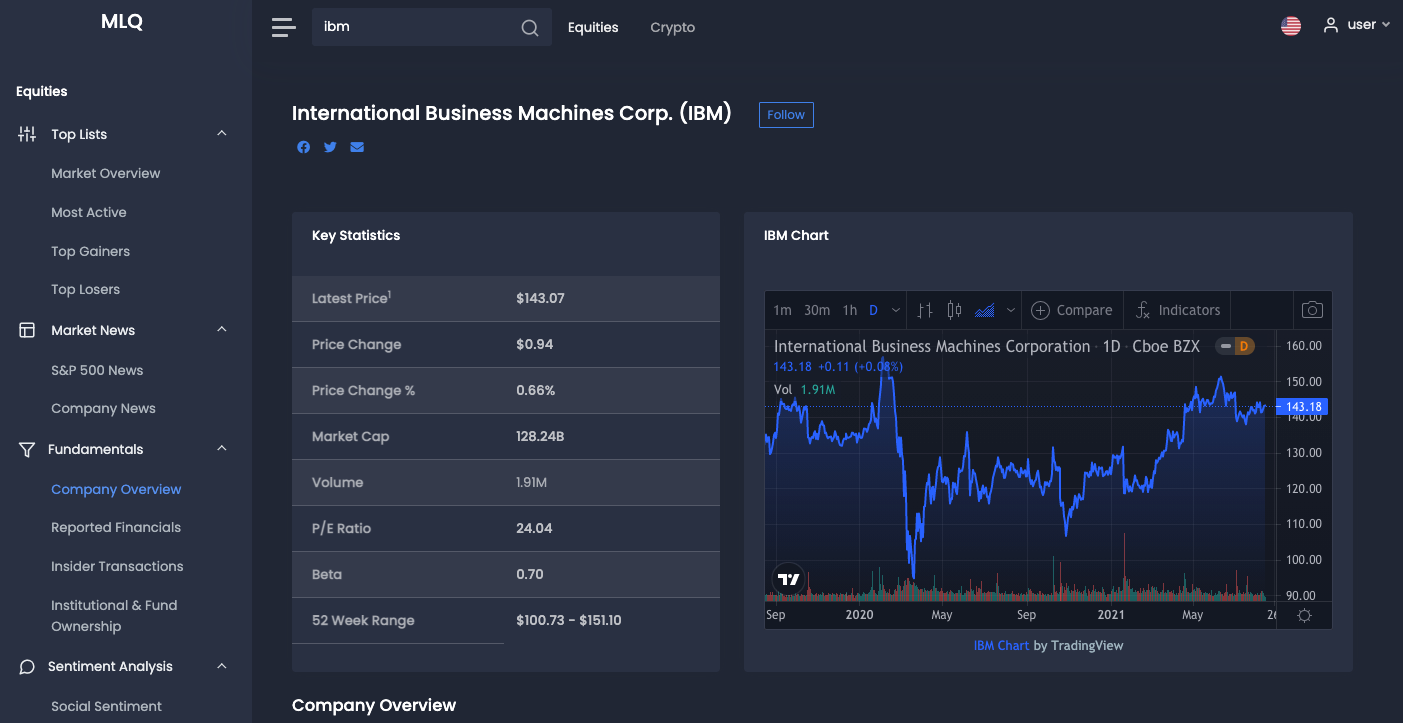
2. Alphabet Inc. (GOOGL)
Google's parent company Alphabet (GOOGL) is another main player in the quantum computing industry with several notable achievements. Firstly, they released a paper in 2019 claiming that they'd achieved "quantum supremacy", which refers to a quantum computer solving a problem that could not be solved by a classical computer in a reasonable timeframe.
Specifically, Google claimed their 54-qubit Sycamore quantum computer was able to perform a calculation in under 3 minutes that would have taken a classical supercomputer 10,000+ years to compute. In this case, the task was not a particularly useful one, and the quantum supremacy claim was disputed by IBM, although it still was a major breakthrough for the industry.
More recently, Google Quantum AI has open-sourced many useful tools for developers and researchers to explore quantum computing, including Google Cirq, TensorFlow Quantum, and more.
The company also recently revealed their new Quantum AI campus in a blog post, in which they also stated their goal by the end of the decade is to:
...build a useful, error-corrected quantum computer. This will accelerate solutions for some of the world’s most pressing problems, like sustainable energy and reduced emissions to feed the world’s growing population, and unlocking new scientific discoveries, like more helpful AI.
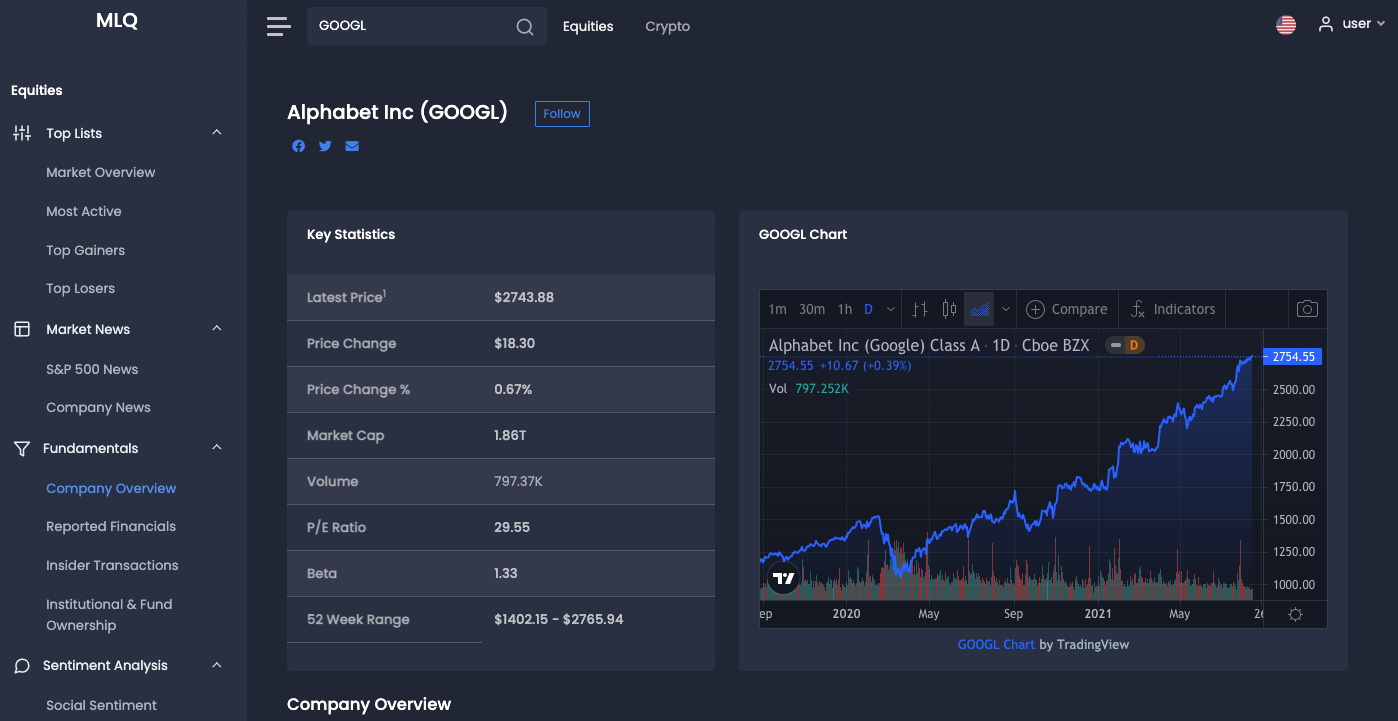
3. Intel, Corp. (INTC)
Intel (INTC) is another semiconductor giant that is developing breakthrough technologies in the quantum computing industry. Specifically, they have been working on building quantum processors and hope to create a production-level quantum computer within the decade.
The company is currently on its third-generation superconducting quantum processor that incorporates 49 qubits, which was scaled up from its predecessor of 17 qubits. Intel has also developed partnerships within the quantum computing industry, most notably they made a $50 million investment into QuTech—a Netherlands-based quantum research center.
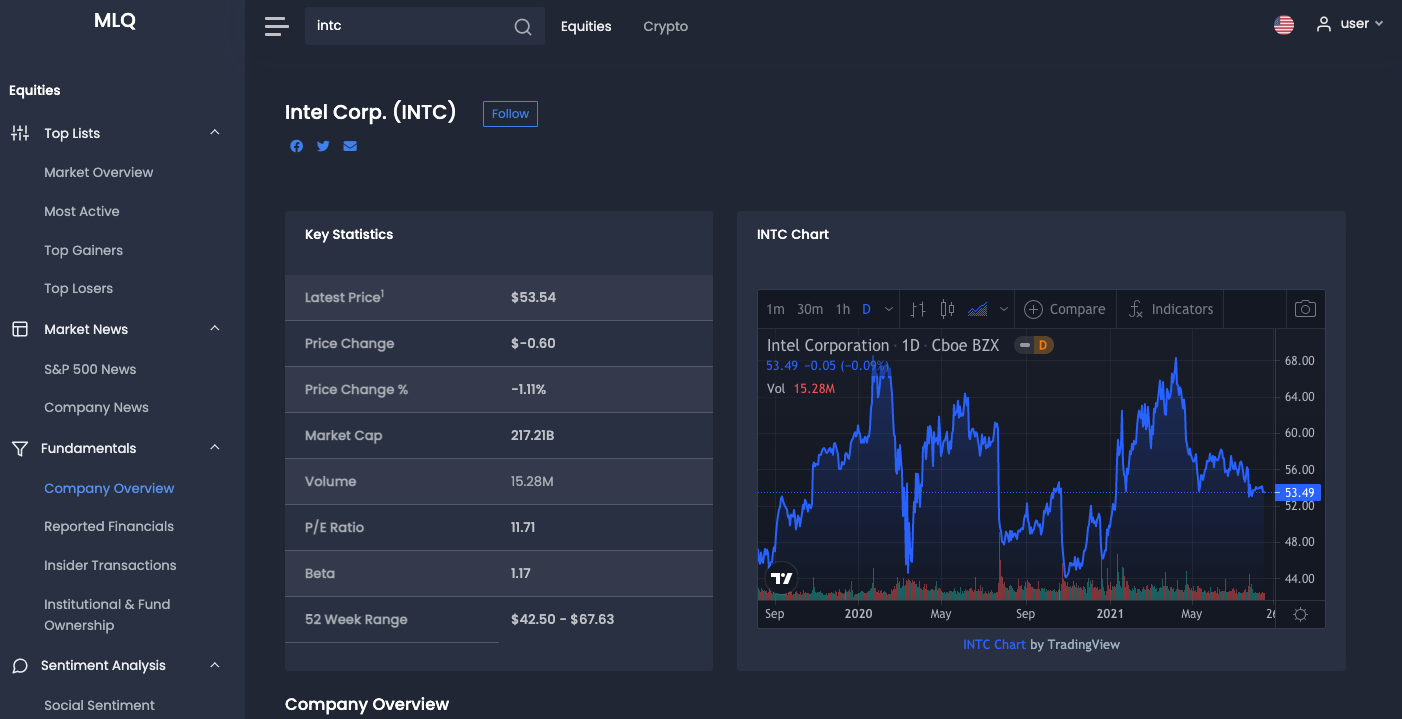
4. Microsoft (MSFT)
Microsoft (MSFT) is another major player in the quantum computing industry. The company already has a strong foundation with their cloud computing business Microsoft Azure and is building off this with Microsoft Quantum. In particular, their Azure Quantum open cloud ecosystem provides quantum software, hardware, and other solutions to businesses, researchers, and developers.
Another notable development Microsoft has brought to the quantum computing space is their quantum development and Q# quantum programming language. This open-source kit provides developers with the tools they need to solve optimization problems with quantum hardware.
Since Microsoft already has a strong foothold in the cloud computing industry, it's likely they'll gain a significant market share of the quantum cloud as the space matures and commercial applications are more prevalent.
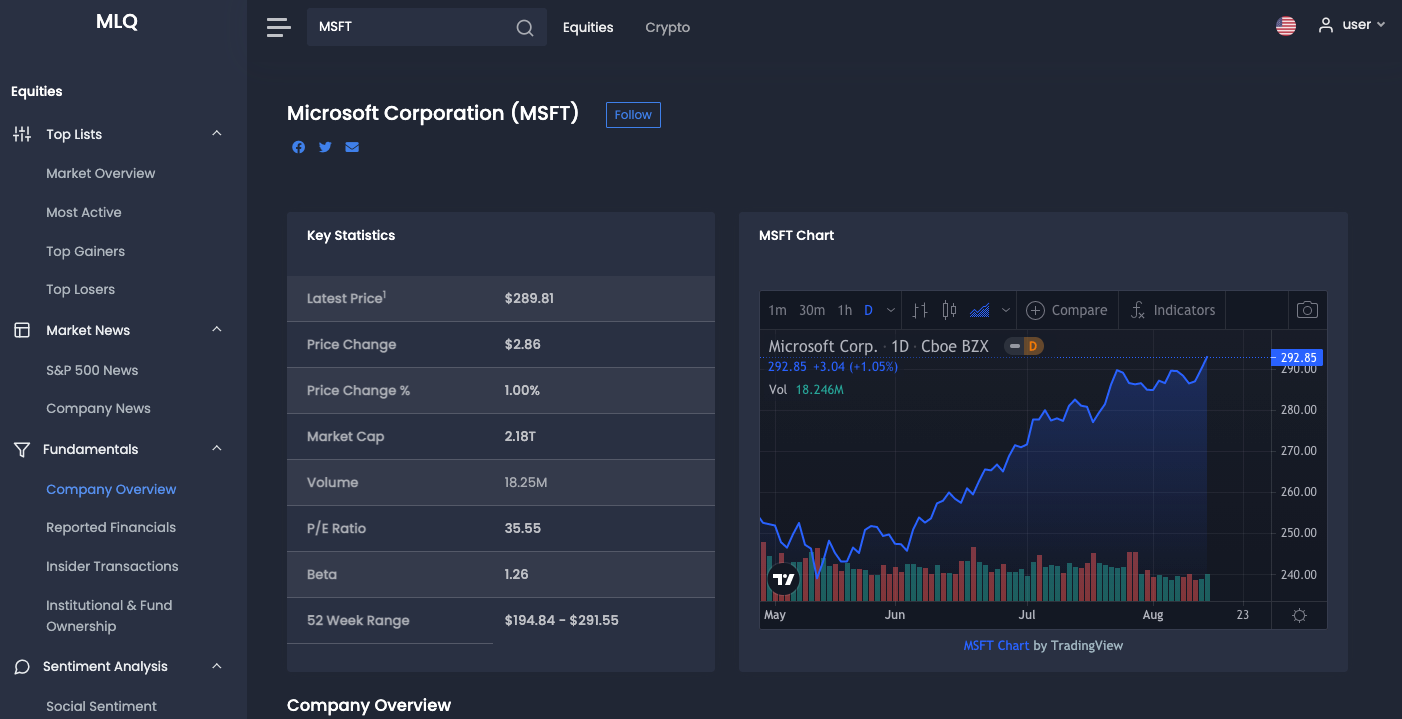
5. Nvidia Corporation (NVDA)
NVIDIA (NVDA) is another company that has been accelerating the quantum computing industry with tools and resources for developers and researchers. One of the tools they provide developers is the cuQuantum SDK, which is a software development kit (SDK) for accelerating quantum computing workflows with quantum circuit simulations.
Since the company is already a major player in the graphics processing unit (GPU) space, there's little doubt they will be a competitor in the quantum processor space as it continues to grow.
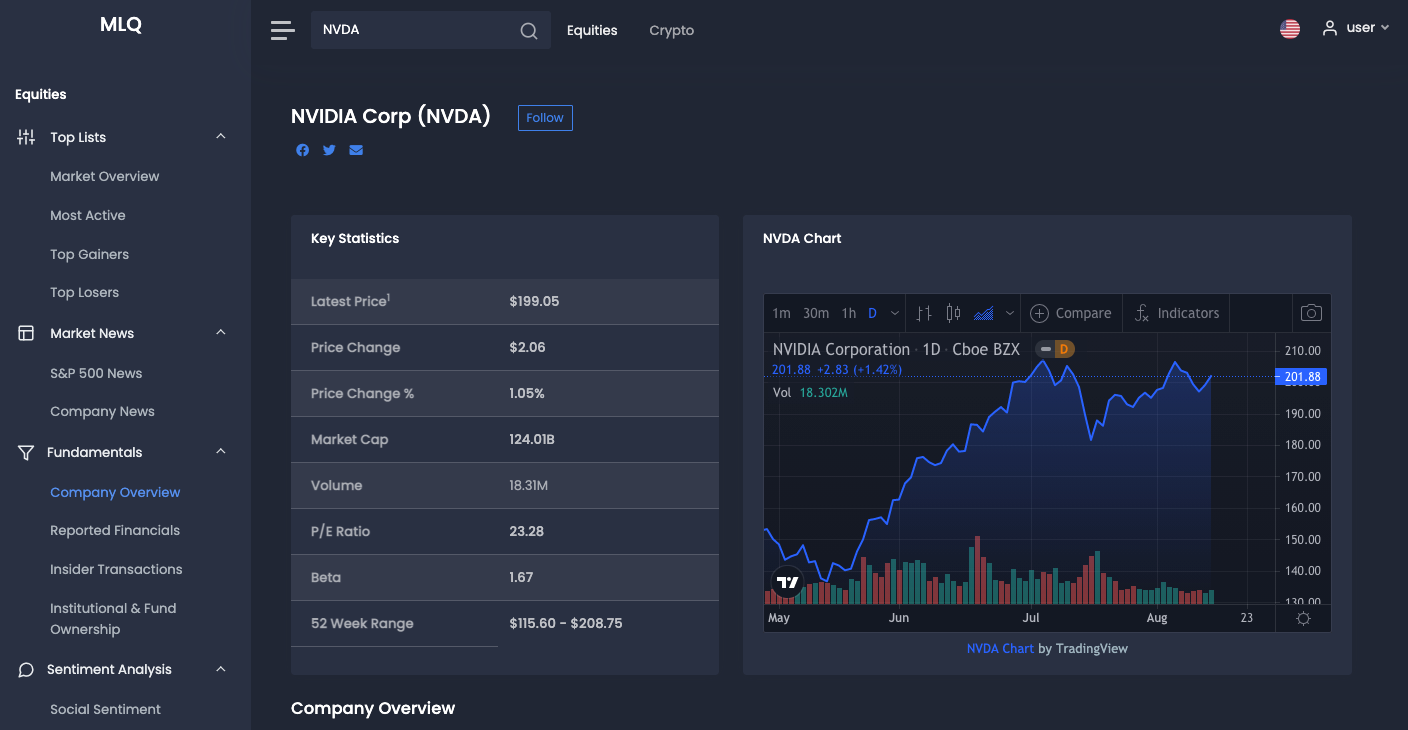
6. Alibaba (BABA)
Similar to other major tech giants on this list, Alibaba (BABA) is also fighting for market share in the quantum computing industry. Given their already massive infrastructured and cloud services, Alibaba is well-positioned to offer a robust Quantum Computing as a Service (QCaaS) to developers and businesses—both in China and globally.
As Investors Place highlights, Alibaba Cloud owns roughly 10% of the global infrastructure as a service (IaaS), which provides the company with strong leverage to offer quantum services to existing customers. Also, since the Great Tech Wall of China will likely prevent non-Chinese companies from dominating the local Chinese market, Alibaba's main competition in the space is Baidu,
One notable division of Alibaba's quantum efforts is their DAMO Quantum Lab, which provides research and open-source projects to speed up the race to global quantum supremacy and QCaaS commercialization.
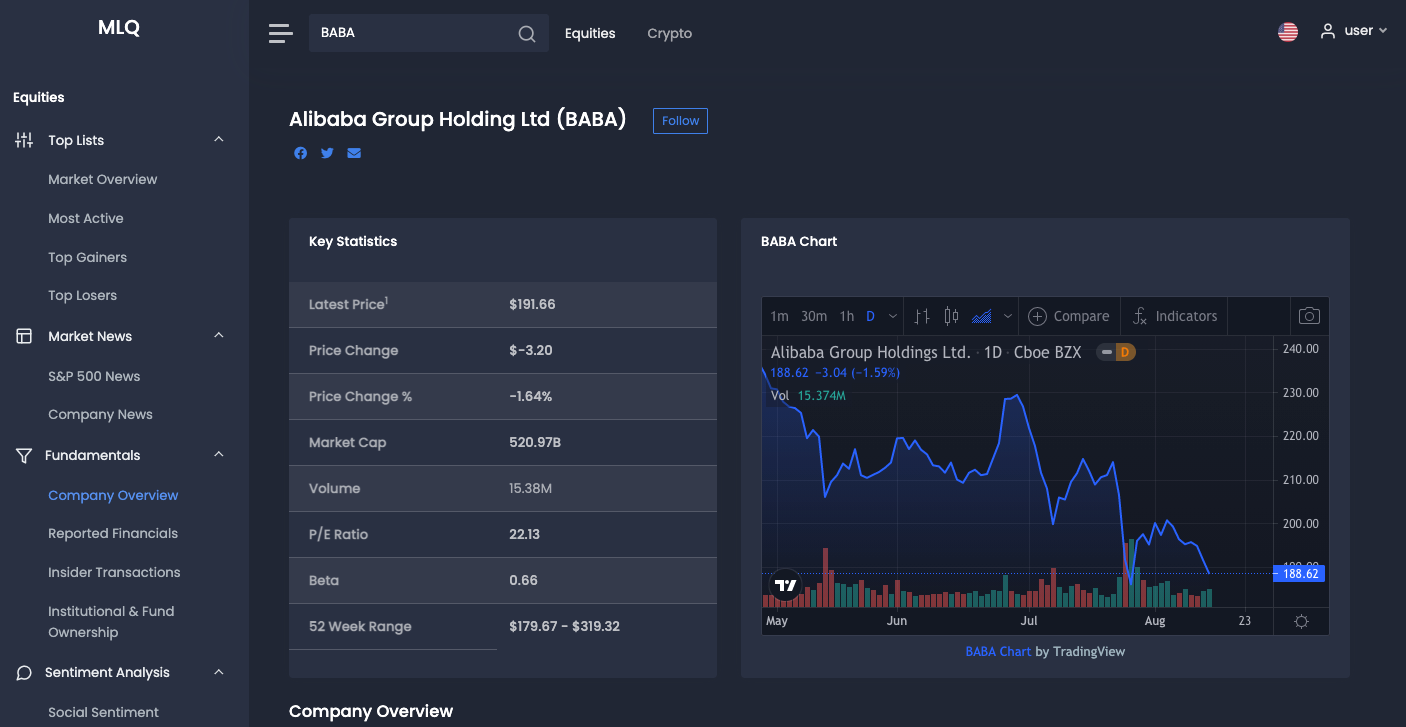
7. Amazon (AMZN)
As a pioneer and early leader in the cloud infrastructure business, Amazon (AMZN) and its cloud division Amazon Web Services are undoubtedly going to be another major player in the quantum cloud industry. Research estimates that AWS currently owns roughly 32% of the cloud infrastructure market, giving them a massive existing customer base to offer QCaaS.
AWS has already added a quantum computing offering—Amazon Braket—which is:
A fully managed service that allows scientists, researchers, and developers to begin experimenting with computers from multiple quantum hardware providers in a single place.
The Braket service also provides access to D-Wave quantum hardware, which are a leader in the quantum computing space, although not publicly traded yet. AWS also has a quantum computing blog that provides insights into how they're exploring industrial use cases with major companies like BMW and others.
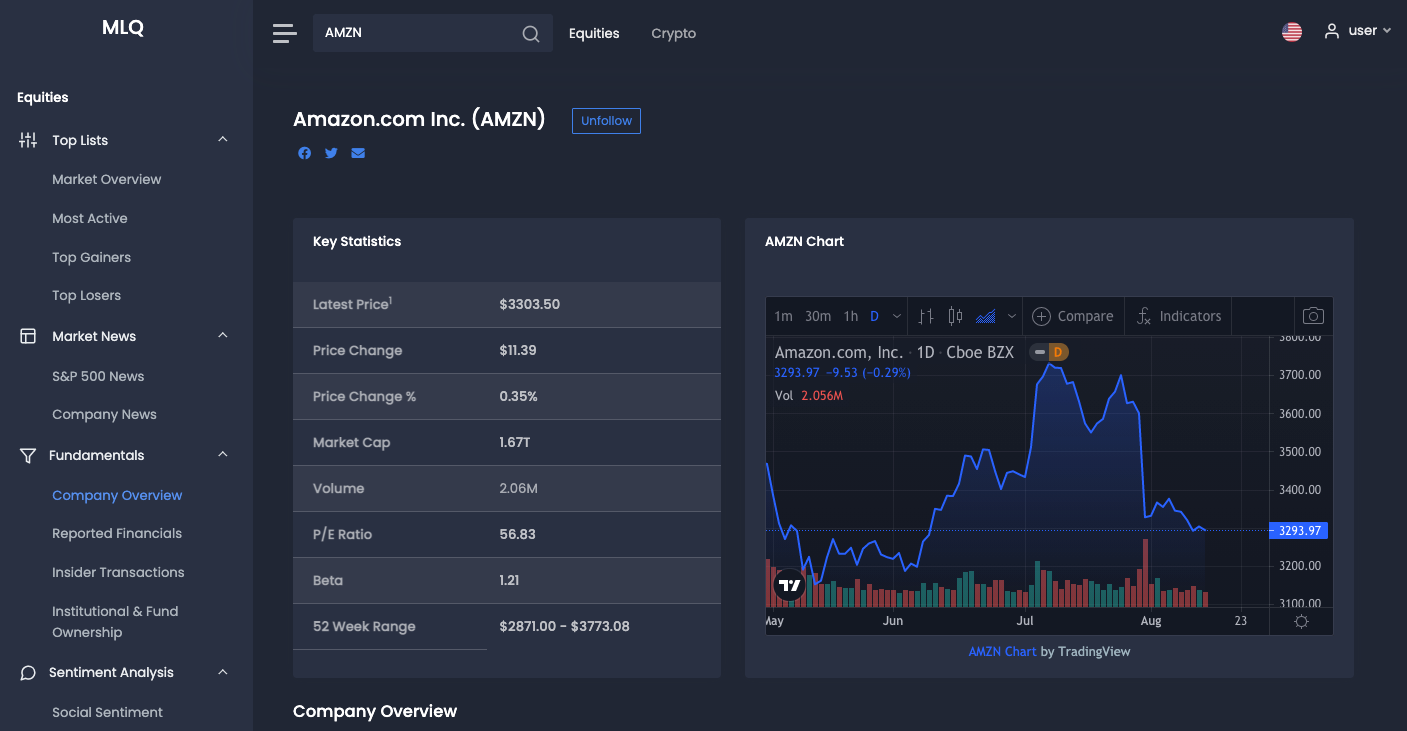
8. Baidu (BIDU)
Aside from Alibaba, Baidu (BIDU) is the other major Chinese tech company to watch in the quantum computing space. Baidu has several notable quantum computing initiatives, including a research center they launched in 2018 as well as their Quantum Infrastructure as a Service (QCaaS) and quantum machine learning toolkit: Paddle Quantum. Paddle Quantum is a quantum machine learning (QML) toolkit, which helps developers create and train quantum neural networks and other QML algorithms.
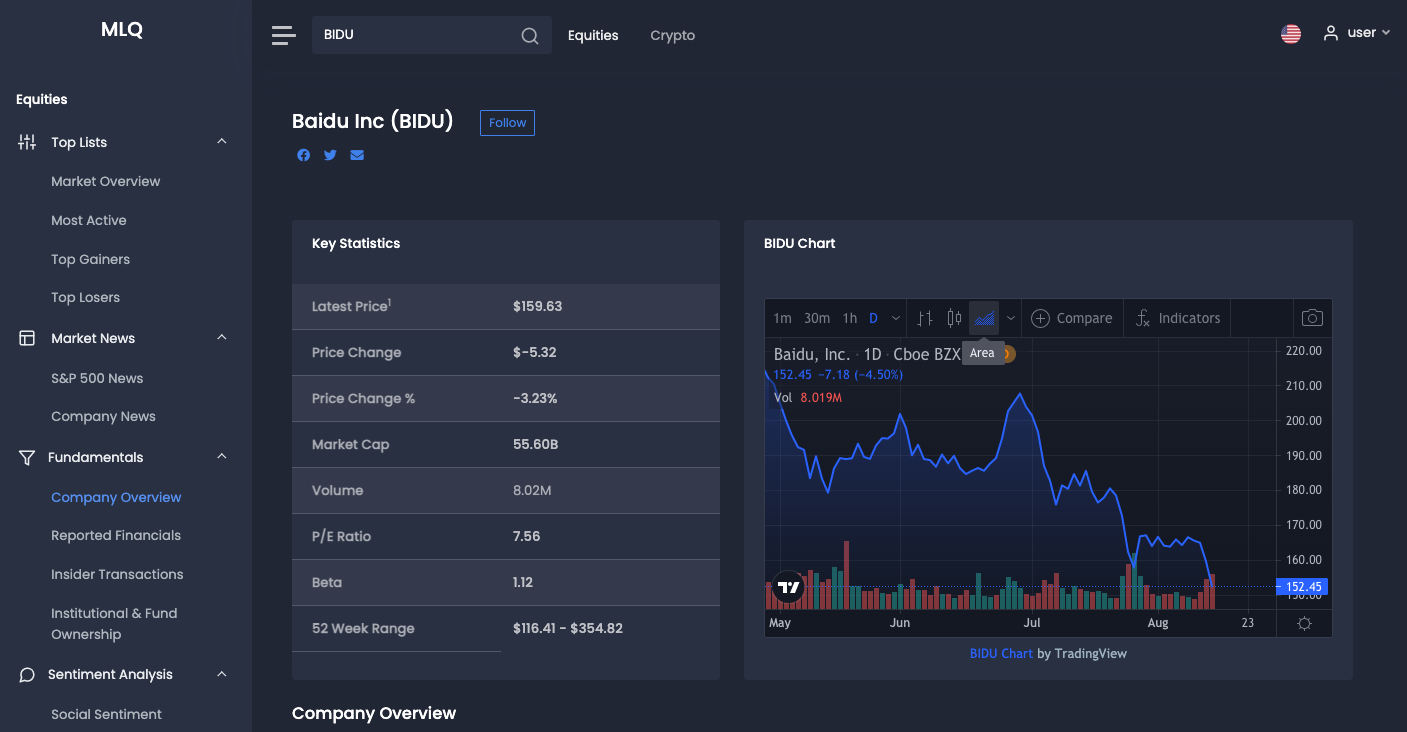
9. Qualcomm (QCOM)
Qualcomm (QCOM) is a semiconductor and software provider that also owns major patents in the 5G and 4G space. In terms of quantum computing, Qualcomm has an impressive AI research lab that is actively researching the intersection of quantum computing and artificial intelligence.
A notable achievement from Qualcomm is their recent paper called: The Hintons in your Neural Network: a Quantum Field Theory View of Deep Learning, in which they:
...develop a quantum field theory formalism for deep learning, where input signals are encoded in Gaussian states, a generalization of Gaussian processes which encode the agent's uncertainty about the input signal.
Given Qualcomm's massive market share in telecommunications, there's little doubt they will incorporate quantum computing into their offerings at some point in the near future.
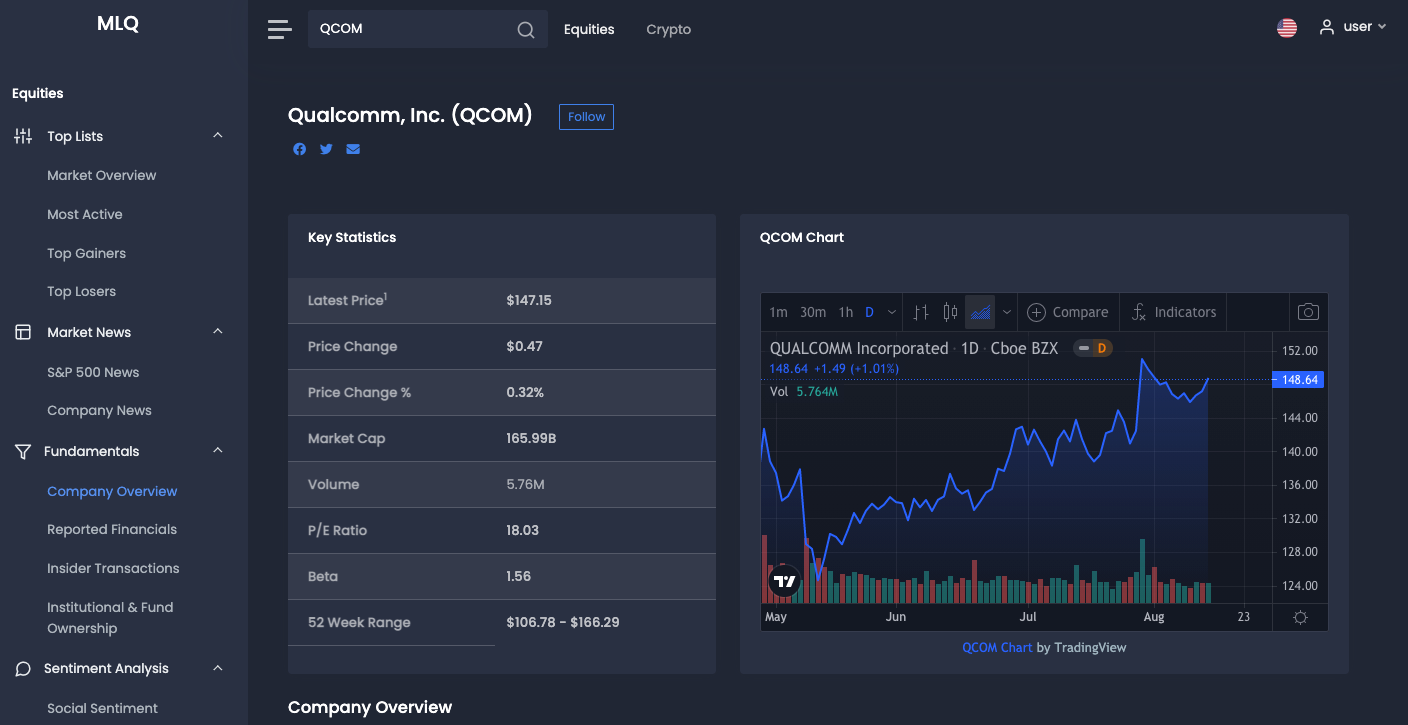
10. Applied Materials (AMAT)
Applied Materials (AMAT) is another interesting company that is known for its manufacturing, materials engineering, and software solutions related to semiconductors. Their products are used to create chips and advanced products including electronics, display, and other related technologies.
In the context of quantum computing, theirs materials engineering capabilities will likely play a central role in near-term quantum hardware. As their CTO said at a quantum computing workshop:
Applied Materials wants to help reduce the time from invention to commercialization, and really make innovation and commercialization happen simultaneously.
Another area that AMAT has recently announced a breakthrough in is DRAM scaling. There has been record demand for high-performance, affordable DRAM, in fields like the Internet of Things (IoT), autonomous vehicles, and 5G, which makes AMAT well-positioned to be a leader in this field.
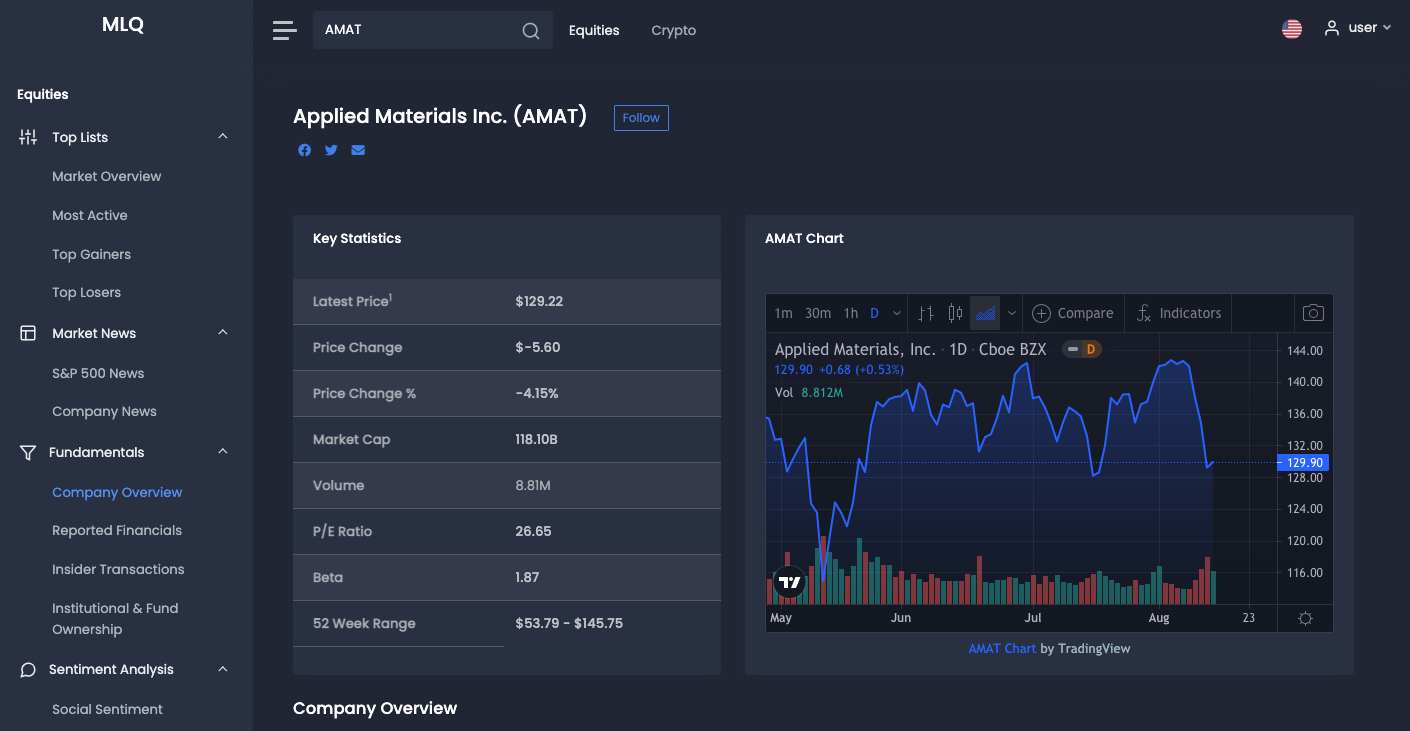
11. NXP Semiconductors N.V. (NXPI)
NXP Semiconductors (NXPI) is another company in the semiconductor and high-performance computing industry. In one of their blog posts, they discuss how quantum computing presents a new cybersecurity threat to society at large as it theoretically crack well-known cryptography problems including RSA.
To deal with this new threat, NXP says that new public-key cryptographic standards are coming and that they are positioned to lead the way in developing and protecting customers in this "post-quantum crypto standard".
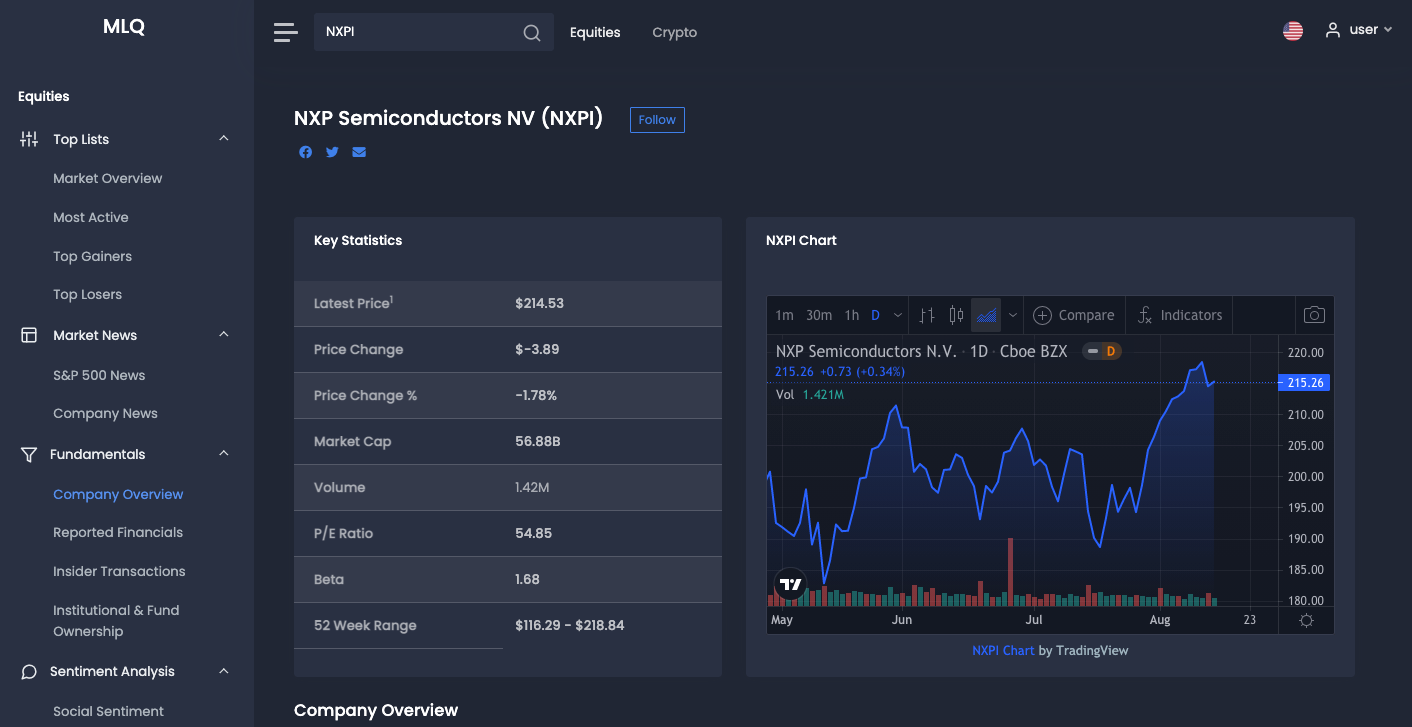
12. Advanced Micro Devices, Inc. (AMD)
Advanced Micro Devices (AMD) is another semiconductor company that develops computer processors and other technology. Given that the company is already offering customers high-performance graphics and processors, it's logical that the company will enter the quantum computing space as it matures.
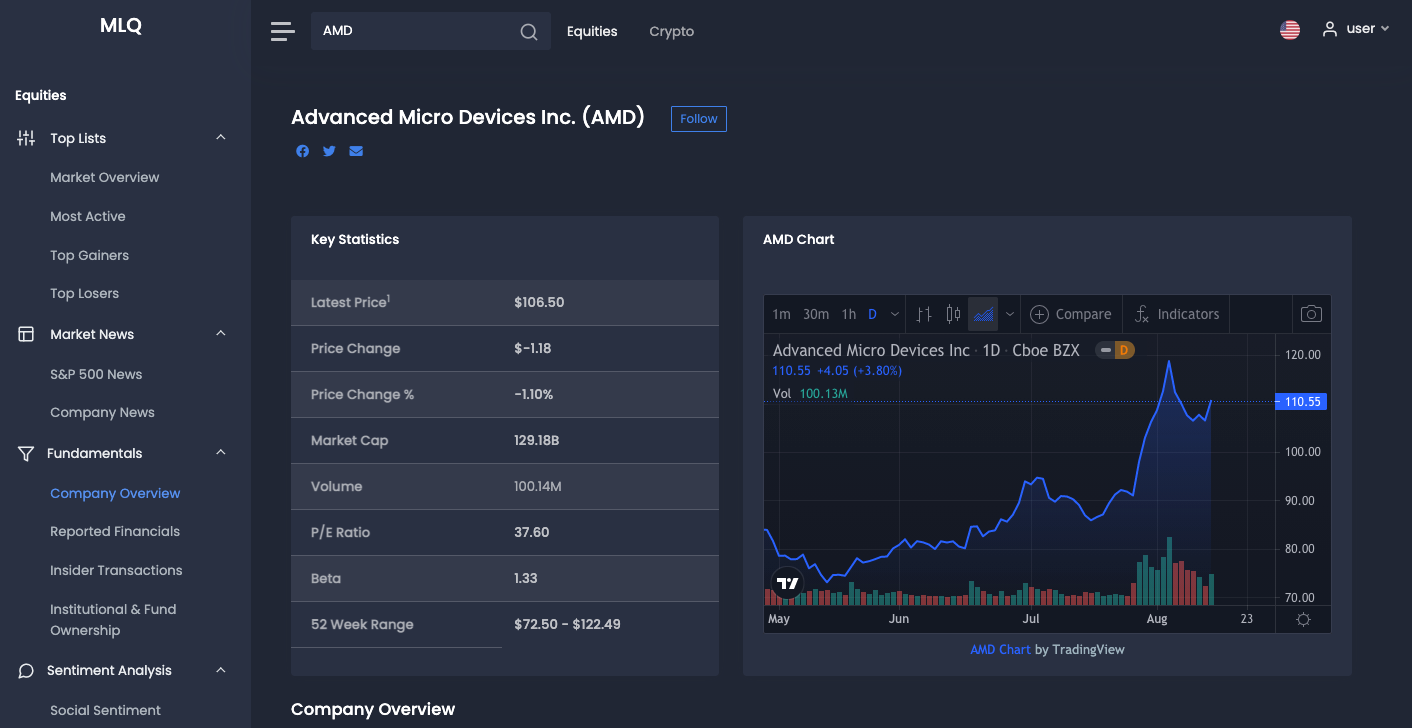
13. Micron Technology, Inc. (MU)
Micron (MU) is another company that could enter the quantum computing market in the coming years. The company creates memory chips and data storage solutions and given they're a leader in DRAM and NAND technology, it's likely they will offer quantum-related solutions in the coming years.
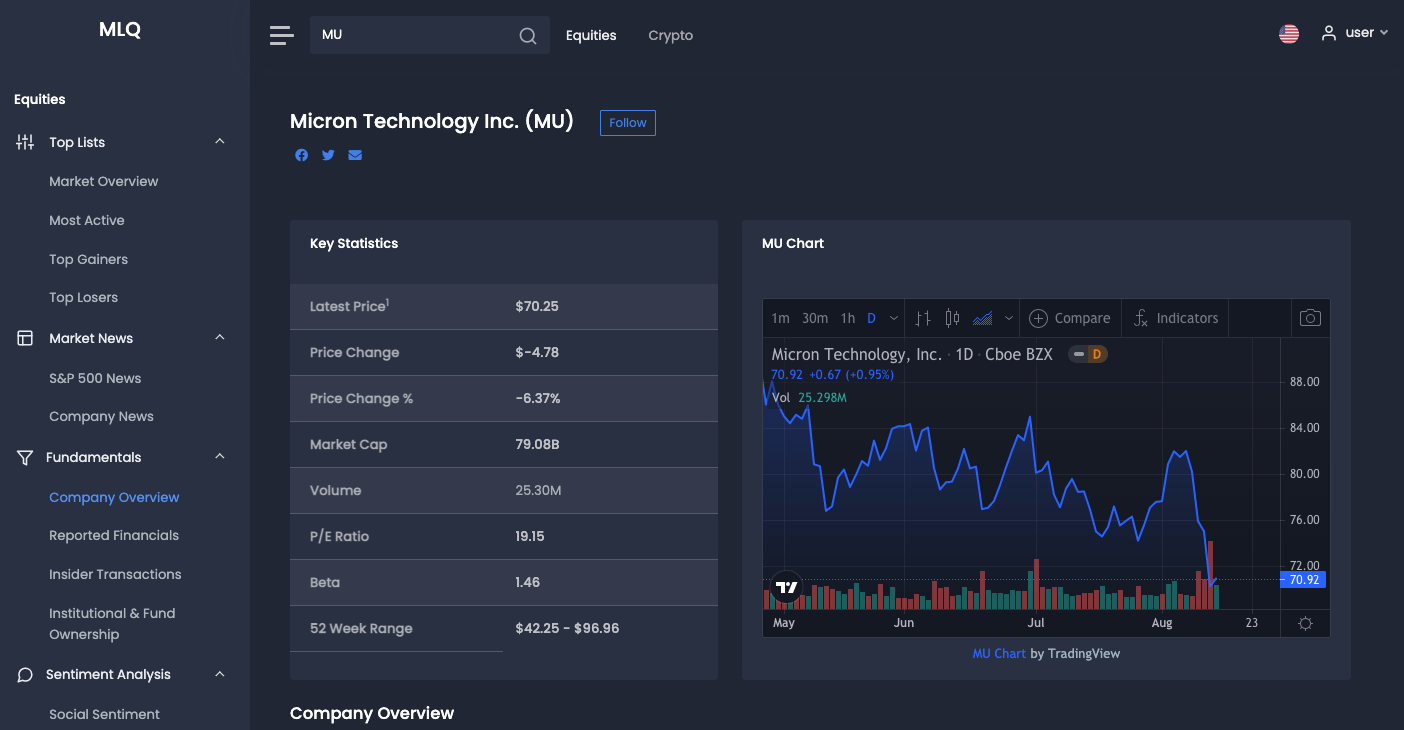
14. Quantum Computing Inc (QUBT)
With a market capitalization of just $219 million at the time of writing, Quantum Computing Inc (QUBT) is by far the smallest company on this list. That said, it is also the only one that is pure-play in quantum computing. The company is focused on providing software and applications for quantum computers and has partnerships with hardware companies including D-Wave. In addition, the company offers a product called Qatalyst which allows developers to run quantum algorithms on classical computers through their API.
In addition to its cloud offerings, QUBT is also working on solving real-world problems with quantum computers in fields such as optimization, logistics, cybersecurity, and more.
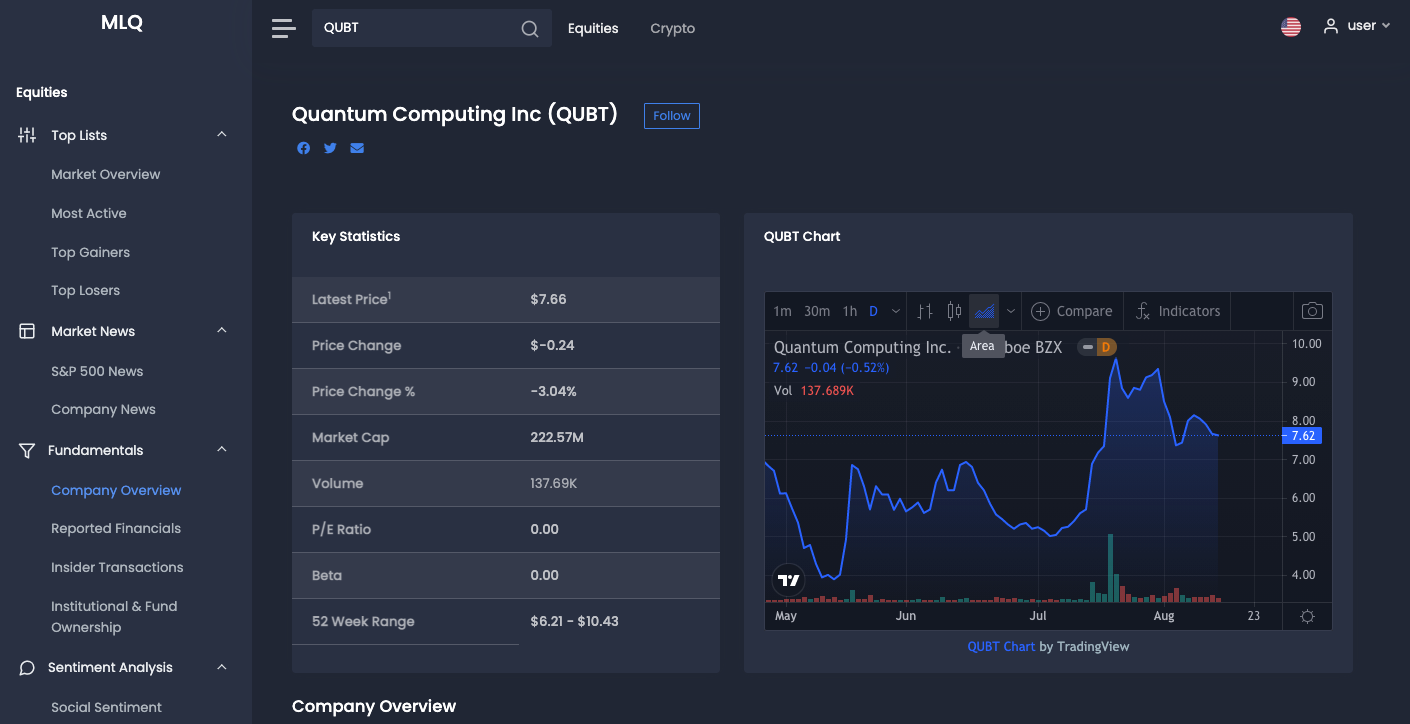
15. Quantum Computing ETF: Defiance Quantum (QTUM)
Finally, while there isn't a quantum computing ETF that is solely focused on quantum, Defiance Quantum ETF (QTUM) provides investment exposure to fields such as quantum computing, machine learning, cloud computing, and other advanced computing technology.
The funds top five holdings include:
- Microstrategy (MSTR)
- Advanced Micro Devices (AMD)
- Splunk (SPLK)
- Synaptics (SYNA)
- Cadence Design System (CDNS)
With over a 100% return since the fund's inception in September 2018, QTUM is certainly an ETF to watch for exposure in the quantum computing space.
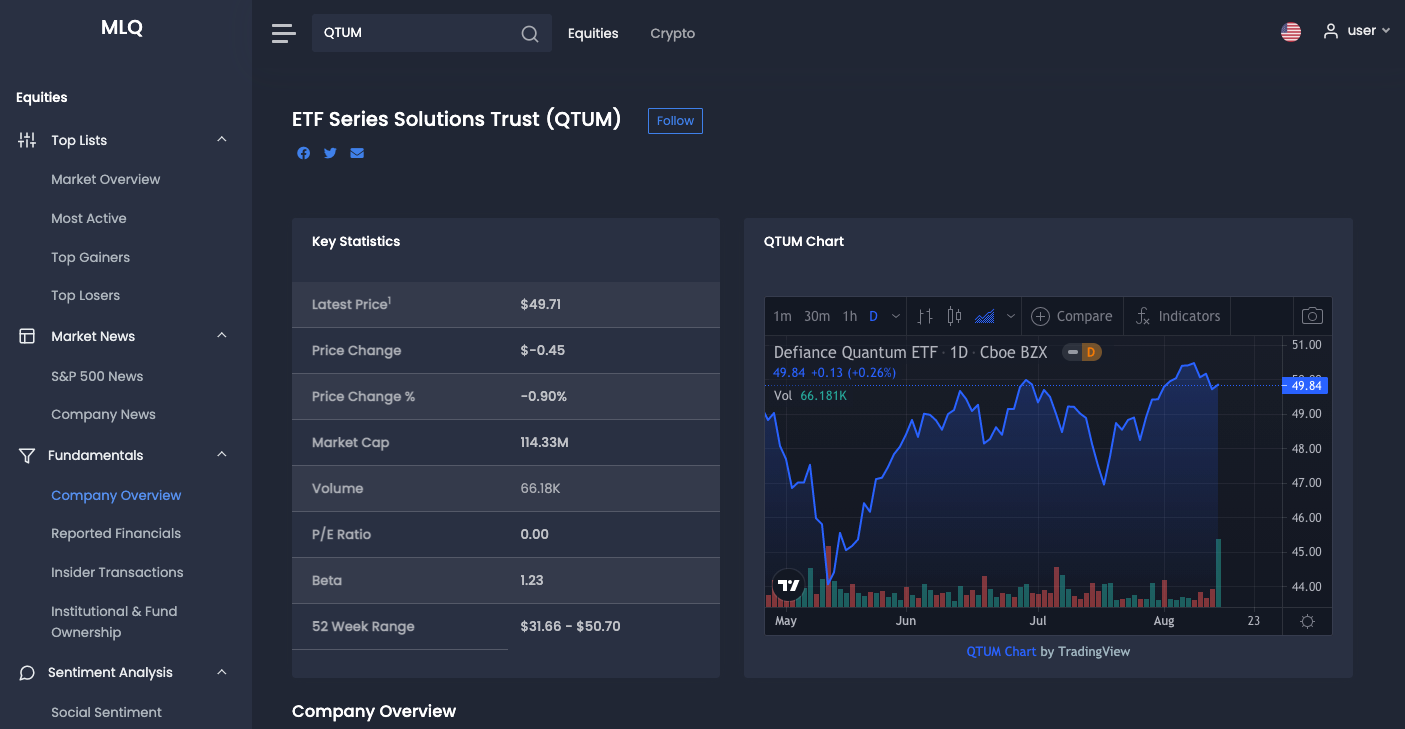
That's it for our list of the top quantum computing stocks to watch, we'll be sure to keep this list updated as the industry develops.






